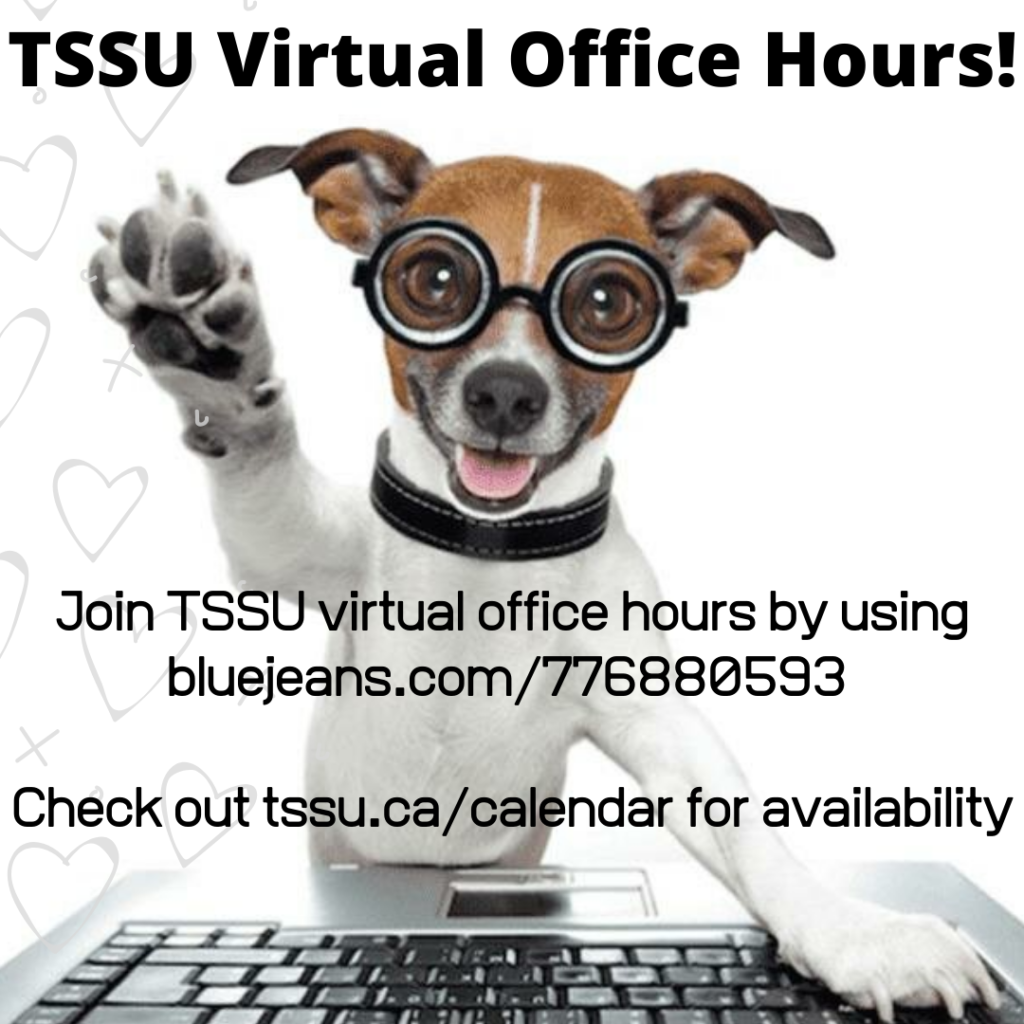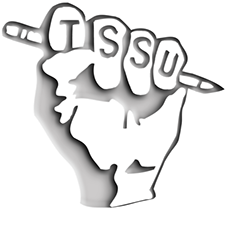Resource Wiki
TSSU members and staff have put together a resource wiki compiling useful information and links for navigating the COVID-19 pandemic:https://covid.tssu.ca
This is a community-driven platform to share resources and guides relevant to surviving this pandemic. Content on this platform is moderated by the community; we encourage members to verify and update this information as conditions rapidly change in the coming weeks. Please feel free to register an account to help contribute.
Through our solidarity as students, workers and community members, we will find a way to get through this pandemic. ![]()

The current outbreak of COVID-19 is very concerning for all of us and the TSSU has been watching developments closely. Our executive, advocacy team, and health and safety reps have been discussing regularly to ensure our members have the information and support they need.
If you have questions, join us during our Virtual Office Hours by clicking bluejeans.com/776880593. See our office hours here. You can also contact us at tssu@tssu.ca or leave a voice message at 778-782-4735.
If you are ill, you can use this new online assessment tool from the BC Ministry of Health to get advice on your next actions.
This is a public health emergency and it will require a collective response from all of us. Through following the prudent advice to maximize social distancing and stay at home we can as workers, students, and a community, stand together in solidarity to limit the impact of this outbreak.
We are also cancelling all of our in-person meetings until at least April 13 and looking into alternative ways to hold different events virtually, so we can stay connected while practicing social distancing. Please look out for more information. SFU has announced it will discontinue any in-person teaching beginning Tuesday March 17, including in-person exams.
Our understanding of the latest recommendations and orders from the Provincial Health Officer and Government:
- discourage all travel outside Canada, with particular note of risks of travel to the United States;
- substantially limit air-travel back to Canada to only certain airports, with restrictions preventing non-citizens, except of the US, from travelling;
- order self-isolation for 14 days for anyone who travels outside Canada and return;
- order the cancellation of mass events of 50 people or more;
- recommend that people "stay home" to contribute to limiting the spread of the virus in the community.
These restrictions will have a substantial impact on everyone and may also affect certain portions of our membership, e.g. international students, more than others. However, it is important that we all do what we can to help limit this outbreak. TSSU will be here to support and advocate for our members.
For the latest information please see:
- BC Center for Disease Control
- Provincial Health Officer
- Vancouver Coastal Health
- Government of Canada
- World Health Organization
Frequently Asked Questions:
For more information, SFU has developed its own detailed FAQ.
What happens if I feel ill?
SFU has expanded sick pay coverage to those employees who have no or limited coverage, as part of its response to this outbreak. With the exception of RAs (more info below), TSSU members whether they work as TAs, TMs, SIs, Graduate Facilitators, or ELC/ITP Instructors now have paid sick leave during this period and should use that sick leave.
By taking sick leave, resting, and seeking medical attention where appropriate, you give yourself a chance to heal and help ensure others do not also get infected.
SFU's most current advice on what to do is on their FAQ here, but in short:
- If you are ill, please stay home and notify your supervisor or Department Chair that you are taking sick leave.
- The province of BC has set up a dedicated COVID-19 line at 1-888-COVID19 or text at 1-888-268-4319 OR 604.630.0300 if you need medical assistance.
- You can also call the provincial health line at 8-1-1.
- If you run into any issues with your supervisor or department, or suffer a loss of pay, please notify us at tssu@tssu.ca.
* Unfortunately RAs are still considered by SFU as employees of their grant holders until May 1, 2020, so it is SFU's position that it is those grant holders who must make the sick leave decision. We disagree, but we encourage you to communicate with your grant holder if you are sick or experiencing any of the circumstances above. Given the situation we expect many grant holders will be accommodating. Should your paid sick leave request not be granted please let us know at tssu@tssu.ca.
Do I need a Doctor's note for sick leave?
No, SFU has confirmed they will not be requiring medical notes for illnesses related to COVID-19 or flu at this time in order to prevent overburdening the medical system. If you are asked for a doctor's note from SFU for a situation listed above or are asked for a Doctor's not for a different illness and are unable to get it because of the overburdened medical system, please immediately inform us at tssu@tssu.ca.
Can I take paid sick leave to care for an ill family member?
Yes, SFU has confirmed that Employees who notify their supervisor that they must absent themselves from work in order to care for a family member due to illness will be placed on a leave of absence without loss of pay.
What if I have special circumstances?
Employees with special situations such as compromised immune systems should speak to their supervisor to determine appropriate solutions. If you run into problems, immediately inform us at tssu@tssu.ca.
Is there additional assistance available as an SFU employee?
Access to certified counsellors and registered psychologists will be extended to all temporary employees through an external program provider, Homewood Health, who can be reached at 1-800-663-1142. You will need to provide them your SFU Employee ID number.
How can I help?
Do your part to "flatten the curve". The Prime Minister has requested that everyone "stay home" and urge you to heed that advice, and only venture out when necessary. Even if you are in a low-risk group, we urge you to take precautions not just to avoid getting infected with or spreading COVID-19, but also to avoid burdening our healthcare system during the pandemic.
Listen to experts. The rumours about COVID-19-from transmission to prevention to treatment-are spreading faster than the virus itself. We urge you to rely on the Office of the Provincial Health Officer and the B.C. Centre for Disease Control (BCCDC) for reliable and up-to-date COVID-19 information as it affects British Columbians.
What should you do if you believe you’ve been exposed to COVID-19?
If you believe you may have been exposed to someone with COVID-19, then it is very important that you follow the guidance and self-isolate. Inform your Course Supervisor or Department Chair that you are taking sick leave. If you need assistance from the Union, please contact us at tssu@tssu.ca. Information on self-isolation is available here.
What if I have reasonable belief that my work is currently unsafe?
Under Health and Safety law all workers have the right to refuse work they reasonably believe to be unsafe. While the current risk of exposure is officially considered low in BC, there may be certain circumstances where an individual's situation makes work unsafe and triggers the right to refuse unsafe work. For example, if someone is at higher risk e.g. is immunocompromised,or has chronic health conditions such as diabetes, heart or lung disease, etc. the workplace may be unsafe for you to physically attend. If you reasonably believe your work to be unsafe, the steps to report unsafe work can be found on Worksafe BC's website.
Can I ask that my duties be rearranged?
Workers can also always have a conversation with the Course Supervisors to suggest alterations to duties to reduce risk; however, there might not be a legal requirement for the Employer to agree to the change. If you want to have your duties rearranged, start by contacting your Course Supervisor to talk to them about your needs.If you have other questions, please contact us at tssu@tssu.ca.
